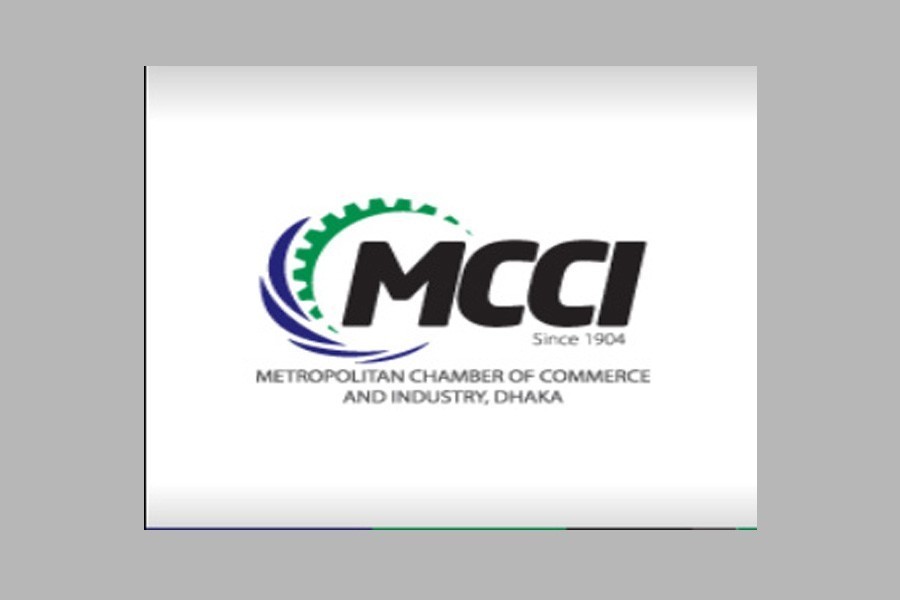The MCCI, Dhaka recommended cautionary measures in spending foreign currencies to contain rising import cost and help save foreign-currency reserves for the sake of ensuring the country's macroeconomic stability.
For doing so, there is a need for necessary 'carefulness' in opening letters of credit (LCs) to check unnecessary imports, said the Metropolitan Chamber of Commerce and Industry (MCCI), Dhaka on Thursday.
The country's oldest business-promotion agency expressed the cautions in its review - Economic Situation in Bangladesh for the January-March period of 2022 (Q3 of FY 22).
The trade-body also termed containing inflation a big challenge in the coming months.
"… intended for the stabilisation of the macroeconomic situation, the country needs cautionary measures in spending foreign currencies in view of higher import trend and the cascading Russia-Ukraine war fallout," the MCCI said in its review.
"The necessity of carefulness is needed in opening LCs as one of the potential thrift measures to avoid unnecessary imports to save foreign currency reserves."
The chamber also suggested 'skillful management' of high subsidies on electricity, gas and fertiliser prices to help curb the possible spending as subsidy.
According to the MCCI review, Bangladesh economy is now rebounding from the COVID-19 shocks.
Before the coronavirus pandemic onset, the economy was growing rapidly at the rate of 7.88 per cent in fiscal year (FY) 2018-19.
However, the growth became slower (3.45 per cent in FY 20), before the economy recovered fast with 6.94 per cent growth in FY 21 and 7.25 per cent in FY 22.
"Today, Bangladesh is one of the fastest growing economies in the world."
During the quarter under review (Q3 of FY 22), the major macroeconomic indicators were in a 'satisfactory' position, according to the review.
Export and import, the two important drivers of the economy, performed well.
"Robust export earnings have facilitated economic recovery in the recent times. The export-oriented garment and leather as well as domestic market-oriented steel, food-processing and transport sectors are running in full scale."
Besides, the inward remittance flow also increased, which has multiplier effects on 25 other economic sectors, the MCCI noted.
On the other hand, some of the economic indicators appeared to be less promising than projected earlier.
According to the organisation, the rate of inflation increased in the quarter under review.
The fiscal framework continues to be weak in view of poor achievements, more specifically, both in terms of revenue mobilisation and public expenditure.
According to the MCCI review, unemployment situation and low investment remain as challenging areas.
It also mentioned that the total liquid assets of the scheduled banks stood at around Tk 4.35 trillion at the end of March 2022, compared with Tk 4.49 trillion at the end of June 2021.
The minimum liquidity requirement of the scheduled banks was over Tk 2.35 trillion at the end of March 2022. The scheduled banks thus held an excess liquidity of nearly Tk 2.0 trillion.
The interest rate spread between the weighted average interest rate on lending and deposits of all the banks increased slightly to 3.10 per cent in March 2022 from 3.08 per cent in February, it also said.
Besides, the banks' lending rate increased to 7.11 per cent in March 2022 from 7.10 per cent in February, but deposit rate decreased slightly to 4.01 per cent in this March from 4.02 per cent in the previous month.
Citing the Bangladesh Bank data, the MCCI mentioned that the net foreign direct investment (FDI) in the first nine months of the current fiscal year (July-March of FY 22) increased by 46.85 per cent to US$1,677 million from $1,142 million in the corresponding period of FY 21.
Terming the FDI inflow in Bangladesh low compared to that in many other countries at the similar level of development, the MCCI added that the government needs to address the impediments to attract more FDI.


